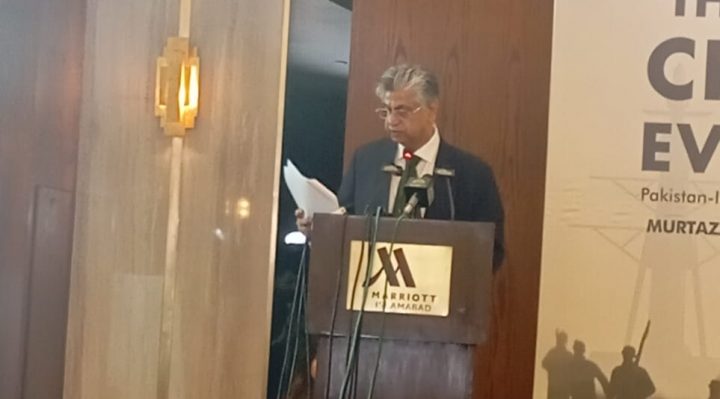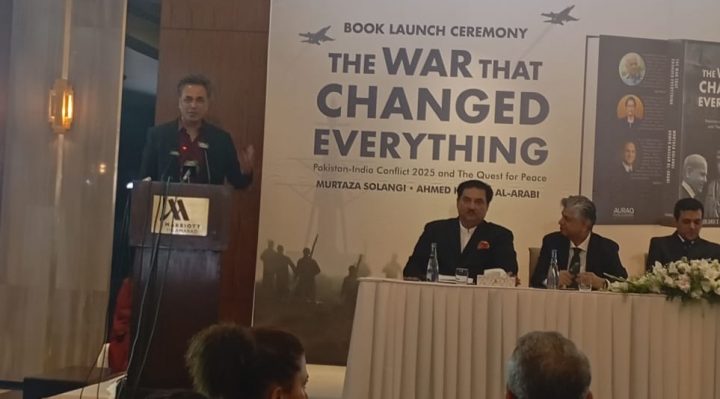‘The War That Changed Everything’ New Book on Operation Banyan Mursos Claims to Expose India’s Lies

The War That Changed Everything: Pakistan’s 2025 Military Triumphs
An important book on Operation Bunyanun Marsus has been unveiled, revealing shocking disclosures that, according to the authors, expose all of India’s alleged falsehoods. The book “The War That Changed Everything” is co-authored by Murtaza Solangi and Ahmed Hassan Al-Arabi is also available on Amazon. It presents detailed, fact-based accounts of Operation Bunyanun Mursus from its inception to its conclusion.

The authors describe how the operation’s name was chosen: “The Air Chief showed pictures of Pakistan’s aircraft to the Army Chief, who likened it to an iron wall (Bunyanun Marsus). He then recited a verse, suggested the name to the Prime Minister, and it was approved.”
On the night of May 6–7, 2025, Pakistan reportedly responded to the Indian Air Force with both aerial and cyber operations. The cyberattacks were described as so powerful that they disabled power at all Indian airbases, destroying more than 4,411 key and sensitive elements of India’s cyber infrastructure.
The book also claims that the Director of India’s Intelligence Bureau admitted no security forces were deployed when Pahalgam was opened for tourists. On May 10, Pakistan is said to have warned India via a military channel that any attack on Karachi would invite an even stronger retaliation.
The narrative challenges Indian External Affairs Minister S. Jaishankar’s statement that India’s first official contact with Pakistan occurred after an “unprovoked” attack on Indian aircraft.

It also references leaked files, codenamed Ex222, allegedly stating that India intended to enter Azad Kashmir and establish a new border 0.75 to 1.25 kilometers inside Pakistani territory—plans that were ultimately thwarted.
During the Battle of Maarka e Haq, the Indian Navy’s aircraft carrier Vikram Aditi reportedly suffered a technical fault. The authors claim India’s repeated references to China were an attempt to deflect from its own setbacks. Citing military sources, the book asserts that Pakistan did not receive external assistance, including from China, and that all operations were prepared domestically.
It further states that before the night of May 6–7, India made two unsuccessful attack attempts from Ambala and Adampur airbases, both foiled through timely intelligence. The Pahalgam attack was allegedly timed with the visit of US Vice President J.D. Vance; had it failed, Ganderbal would have been targeted next.
According to the book, Pakistani JF-17 Block 3 aircraft destroyed India’s S-400 defense system. On May 6, three combat exercises positioned Indian aircraft for easy targeting. Following strikes on Bholari and Srinagar airbases, the Indian DGMO allegedly requested a ceasefire.
The book claims India’s larger war efforts were undermined by the killing of 71 militants in Hasan Khel, leading to failure in the Battle of Maarka e Haq. The conflict, it says, strengthened Pakistan as a “net regional stabilizer” while undermining India’s “net security provider” narrative.
The book launch ceremony (The War That Changed Everything) was attended by prominent political, media, and diplomatic figures, including the Ambassador of Azerbaijan, His Excellency Khazar Farhadov, former federal minister Khurram Dastagir, and senior journalist Talat Hussain.




